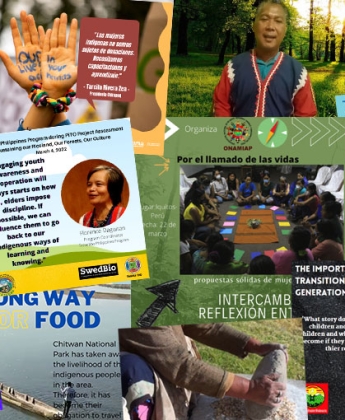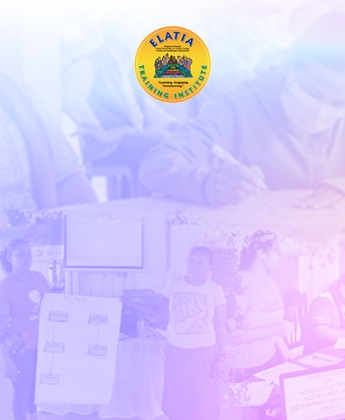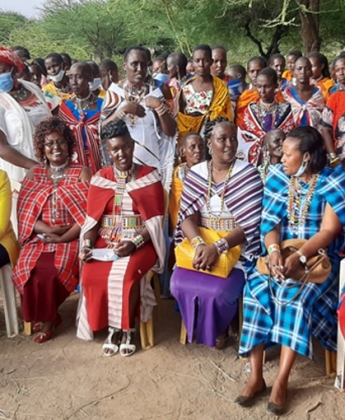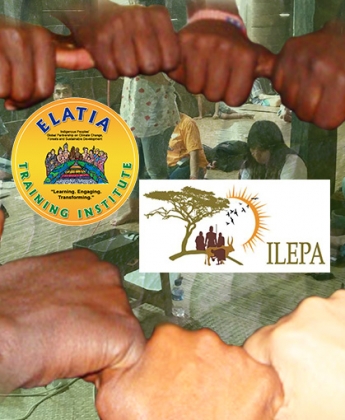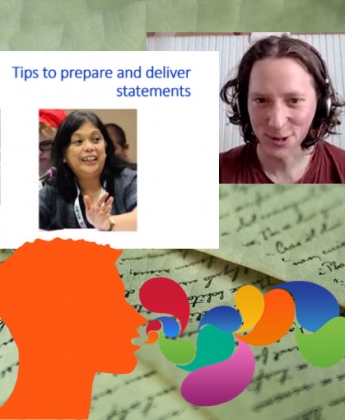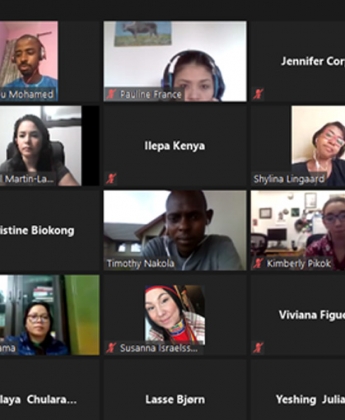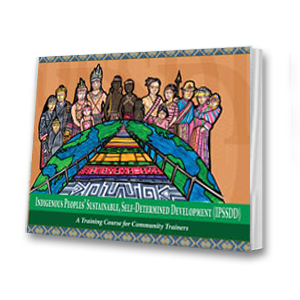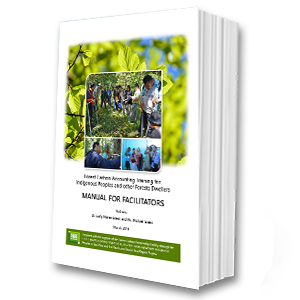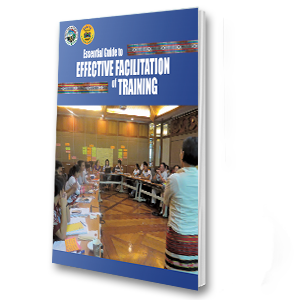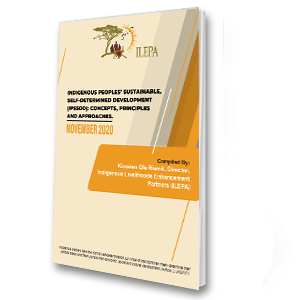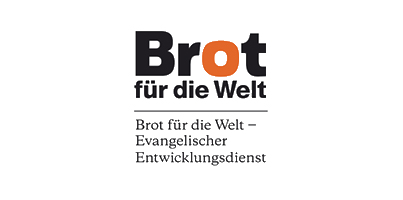Background
“Learning. Engaging. Transforming.” These three principles serve as guide for the training institute in the development and implementation of its programs as regards enhancing the capacities of young and second-generation indigenous peoples. Key representatives of the ELATIA Partnership came up with these three significant principles during the inception meeting for the establishment of a training institute on September 2018 in Mandaluyong City, Manila, Philippines.
While there are many challenges in the effective implementation of the United Nations Declaration on the Rights of Indigenous Peoples (UNDRIP) which was adopted more than a decade ago, indigenous peoples continue to assert their rights across the different fora in various levels. The ELATIA Partnership, comprised of 19 indigenous peoples’ organizations and networks in 14 countries, plays significant roles in important advocacies across the different spaces. It also aids in strengthening and empowering IP communities through various initiatives relegated toward self-determined sustainable development.
The sheer number and capacities of ELATIA Partners and other indigenous leaders engaging in the divergent spaces, open for indigenous peoples at the local and international levels for the effective implementation of the UNDRIP, are limited. Thus, there is a need to increase the number and capacities of new indigenous leaders and women representatives to strengthen and sustain the advocacy initiatives and political participation of IPs at various levels.
There are capacity building programs and activities spearheaded by other organizations and networks, such as those done by the International Indigenous Women’s Forum (FIMI-IIWF) for indigenous women, but they are not executed in a targeted and sustained manner. To ensure the establishment of a sustained and targeted capacity building program and knowledge-sharing platform for the ELATIA Partners and other like-minded indigenous peoples groups, the ELATIA Indigenous Peoples’ Training Institute was established in 2018 through the initiative of the Tebtebba Foundation and the support of the said ELATIA Partners. The training institute gears to train and mentor next generation leaders including indigenous women.
The Training Institute implements the following:
-
Development of Training Toolkits. To facilitate trainings, different training course modules and learning tools are being developed to further supplement other training materials produced and used in the past. The Indigenous Peoples’ Sustainable, Self-Determined Development (IPSSDD): A Training Course for Community Trainers (Revised 2021), a training guide for the basic course, is updated as needed. You can download the updated version of the training course guide here. A training guide on effective advocacy is developed based on advocacy trainings conducted previously.
A facilitators’ guide, Forest Carbon Accounting Training-Facilitators’ Manual, was developed under the Forest Carbon Partnership Facility Capacity Building on REDD+ for Forest Dependent Indigenous Peoples in East Asia and the Pacific and South Asia Project. It was used by the project partners in the training of trainers on carbon accounting for indigenous peoples.
With the changing scenario brought on by the COVID-19 pandemic, the Training Institute is geared to adopt new training innovations including the use of web-based learning management platforms. Training course toolkits will be adjusted to suit new learning systems and address the contexts of the training participants.
-
Implementation of Training. Trainings are conducted at the community and global levels. Facilitators training is also conducted to enhance the Partners’ capacity in conducting community-level training such as of the IPSSDD Course.
A facilitator’s guide for effective facilitation of training is developed to enhance the skills of facilitators, trainers, and resource persons to meet, respond and, if necessary, adopt to the contexts of their audiences. This guide also contains the basic principles in effective facilitation, the qualities of an effective facilitator, and several helpful tips and instructions toward achieving an effective and fulfilling learning experience.
-
Networking and Partnership. Networking and partnerships with various universities that have programs on indigenous peoples and their human rights are being explored to further enhance and broaden the Training Institute’s initiatives and reach.
Foundational Courses
-
IPSSDD Course. This course elucidates the concepts, principles, and approaches including best practices that constitute the holistic framework of the indigenous peoples’ sustainable self-determined development (IPSSDD) which is central to the ELATIA Partnership’s development initiatives. Furthermore, it relates the global multiple crises to the situation of indigenous peoples and emphasizes the roles and contributions of indigenous peoples as local-global actors in response to contemporary challenges.
- Indigenous Peoples and International Human Rights Law. This course traces the historical development and contents of human rights standards and instruments on indigenous peoples’ rights at the international level and clarifies these standards on IPs. It explains the human rights mechanisms available to address human rights issues of indigenous peoples and imparts skills on how these mechanisms can be effectively utilized. In addition, this course identifies and explains the key issues and recent developments regarding indigenous peoples.
Special Courses
Special courses are developed and conducted based on the expressed needs of the Partners. These courses will cover the right to lands, territories, and resources; community organizing and strengthening; advocacy and negotiations; climate change; and others.
-
Advocacy and Negotiations Course. This course equips young indigenous peoples and second-generation indigenous leaders, including indigenous women, to become effective advocacy drivers across various fronts. The history and significance of indigenous peoples’ advocacy works and engagements as well as the basic knowledge, skills, tools, methods, and processes necessary for effective advocacy are covered in this course. Training participants will also be guided to develop their own advocacy frameworks, plans, or strategies. They will also be provided opportunities to exercise these theories into practice across different spaces and arenas. They will be mentored as they participate, engage, and influence development policies, programs, and decisions in relevant political arenas.
A training on lobbying and advocacy for the UN Convention on Biological Diversity (UN CBD) was undertaken. Hence, trainings for the same effective advocacy at the UN Framework Convention on Climate Change (UNFCCC) and other spaces will be conducted.
-
Community Finance Management Training. This training teaches management officers or members with finance-related functions in indigenous peoples’ organizations (IPOs) to effectively and efficiently manage their financial resources. They would be trained to plan and budget their available resources, to properly document and flawlessly record their income and expenses using the correct and standard tools. They will be trained to further develop or enhance their finance policy and procedures which are crucial in the overall management of their financial resources. In addition, the participants will be trained to ensure that bookkeeping is properly executed, following the standard procedures in the accounting cycle.
The Training Institute counts among its pool of trainers, facilitators, and resource persons various indigenous leaders and experts who have long years of experience working for the promotion of indigenous peoples’ rights and the strengthening of the indigenous communities’ capacities. The training of community facilitators coming from the ELATIA Partners are continuously undertaken to localize the courses.
Overseeing the overall implementation of the different activities, its secretariat is based at Tebtebba Foundation Inc. that is located in Baguio City, Philippines. The Training Institute has no physical facility as trainings are conducted in the communities of indigenous peoples where participants, facilitators, and resource persons can most conveniently gather. In conducting the training on advocacy, trainings happen where the UN processes are taking place such as that which was held in Montreal, Canada.


